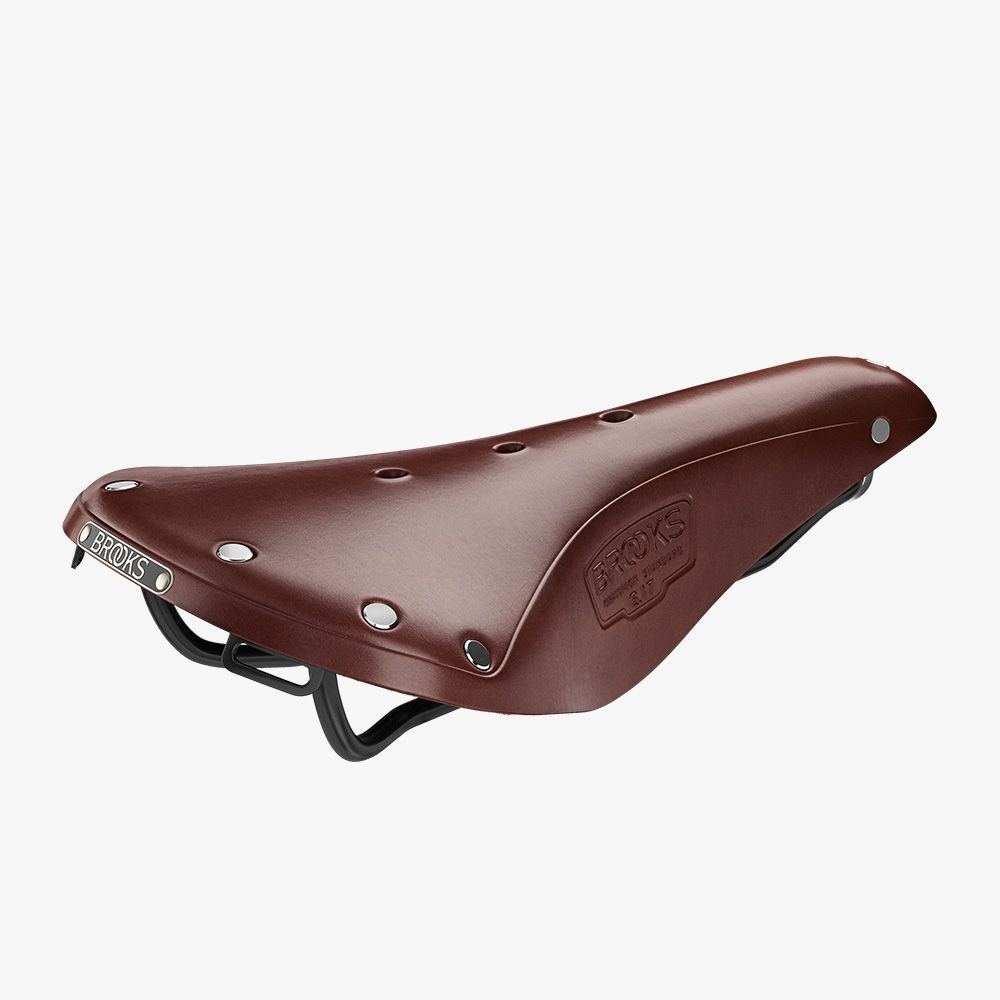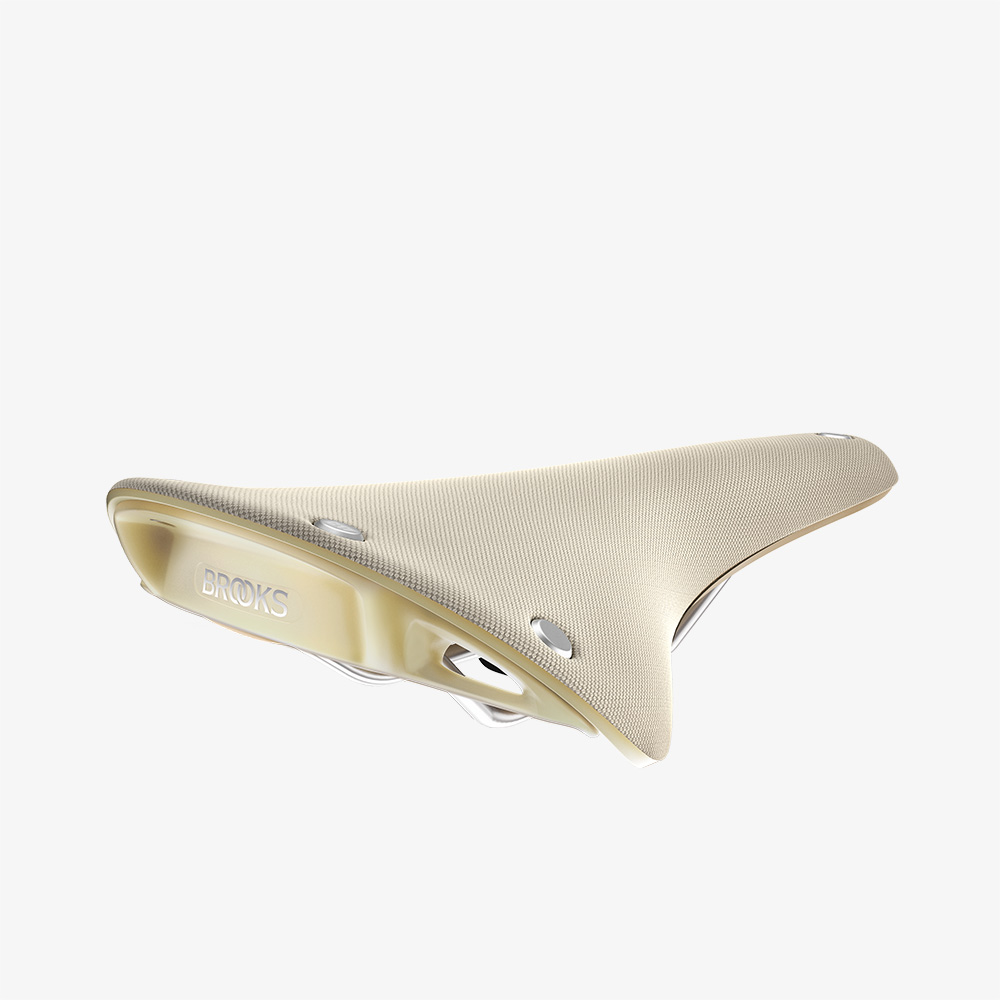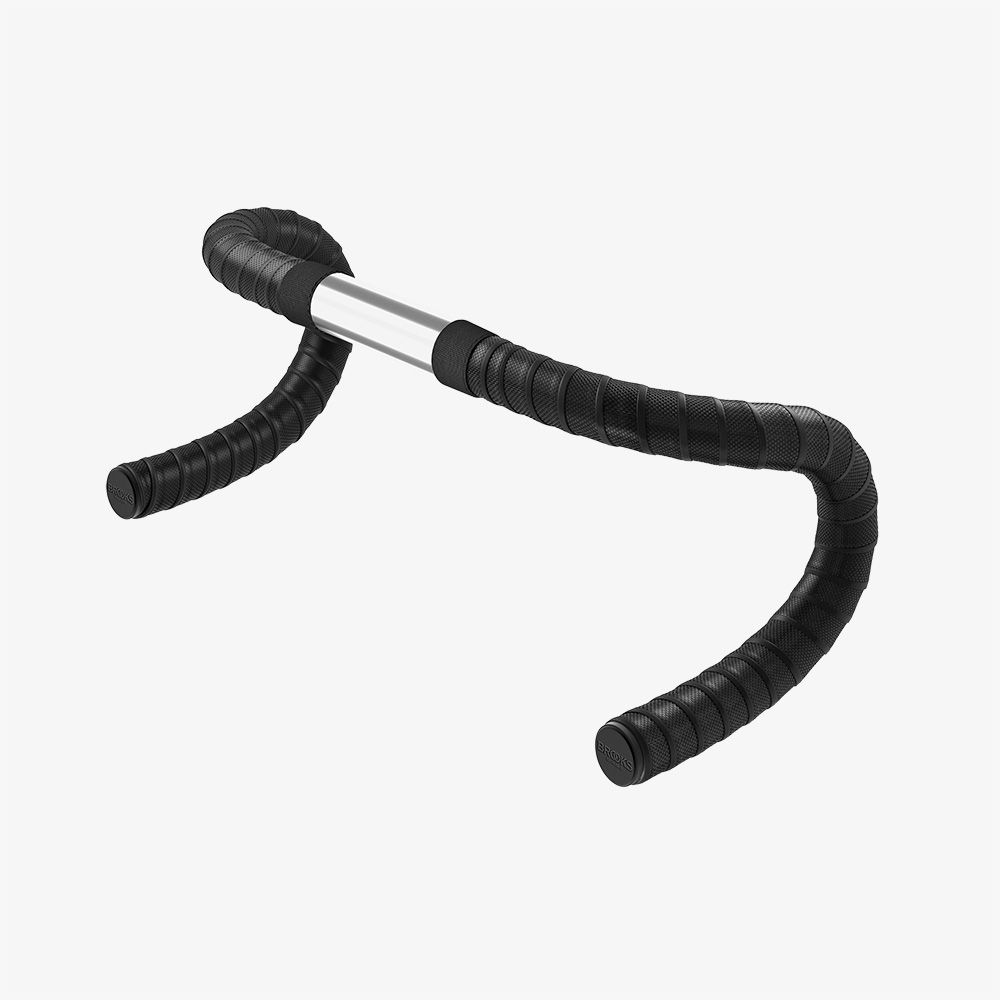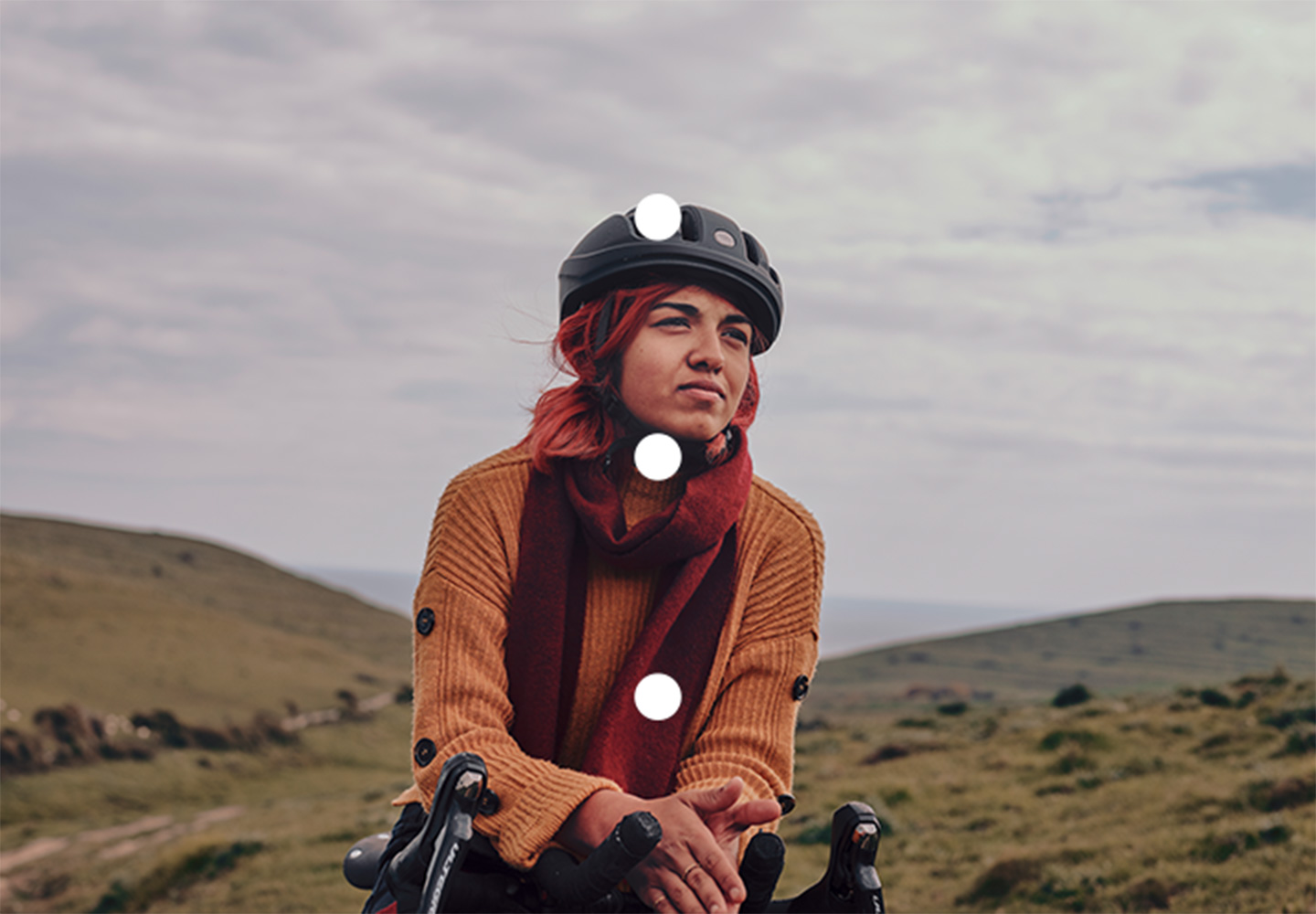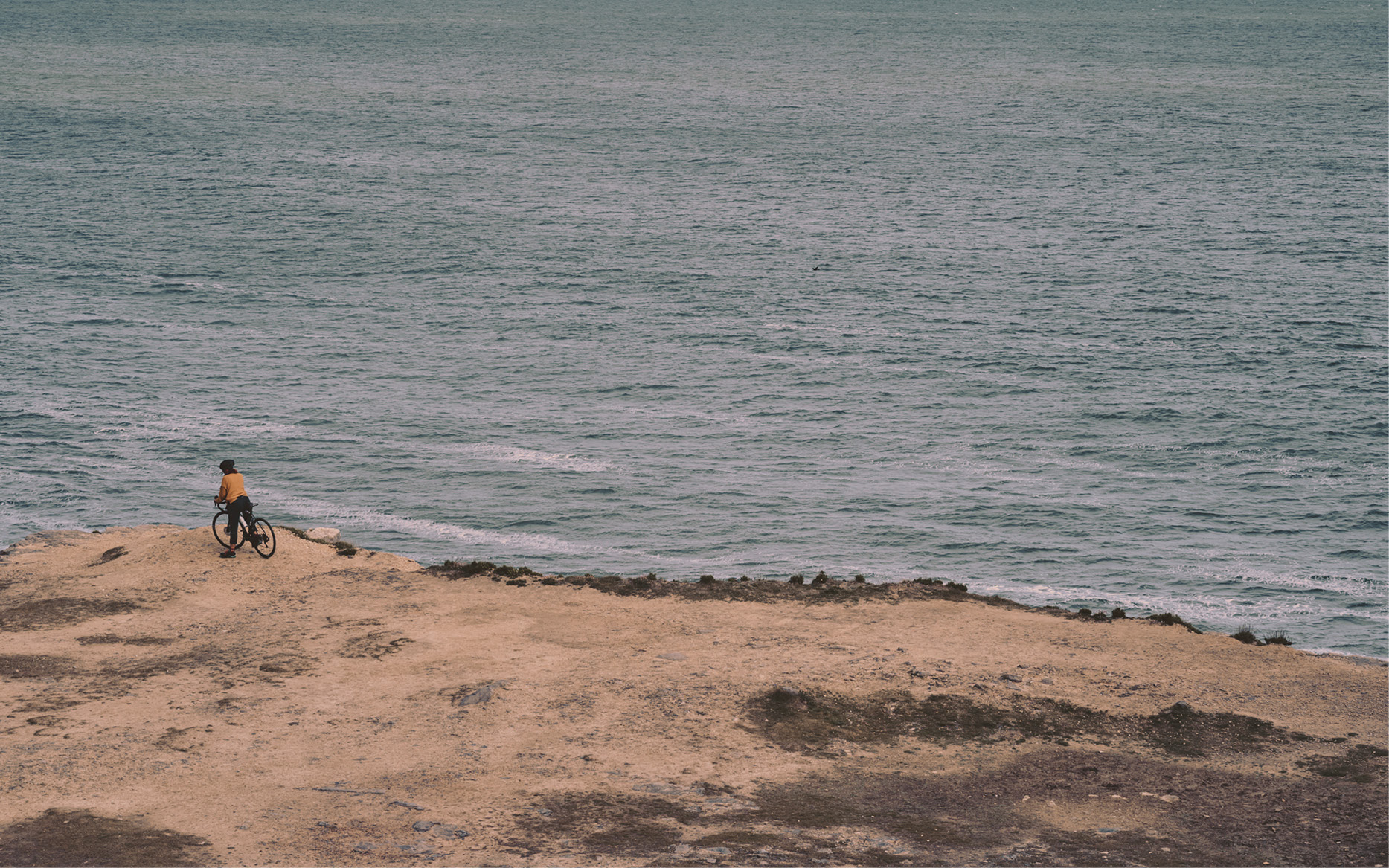
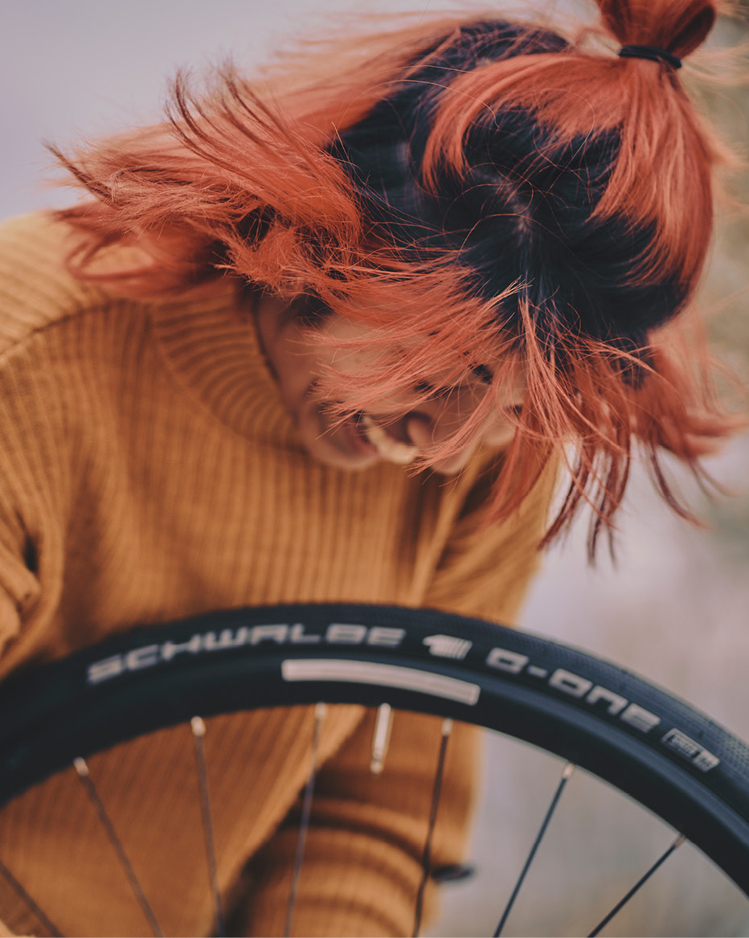
People
Force of Nature
The incredible story of the fastest Asian to pedal the globe.
By Kit Nicholson
The freedom of the open road is one of the most heralded pleasures of cycling, but one which few people really take to its extreme. Vedangi Kulkarni is one of those few, who at the age of 19 set off to ride around the world. Near the end of December 2018 and 159 days after leaving Perth, Australia, Vedangi, then 20, arrived in Kolkata with 29,000km in her legs, ready to board a flight back to Australia to complete the circumnavigation.
The tests the young Indian faced along the way involved not just adverse weather and gruelling distances, but large hairy mammals, speeding trucks and violent humans. But Vedangi overcame it all with her characteristic grit and determination, becoming the fastest Asian ever to pedal the globe.
Although the possibility of breaking records was on her radar when she took the start, her motivation to circumnavigate the globe came about in a far more organic way. It was just the natural next step on a path which had started at home in India barely two years earlier.
Kit Nicholson talked with Vedangi about how cycling became an everyday tool for exploration and discovery.
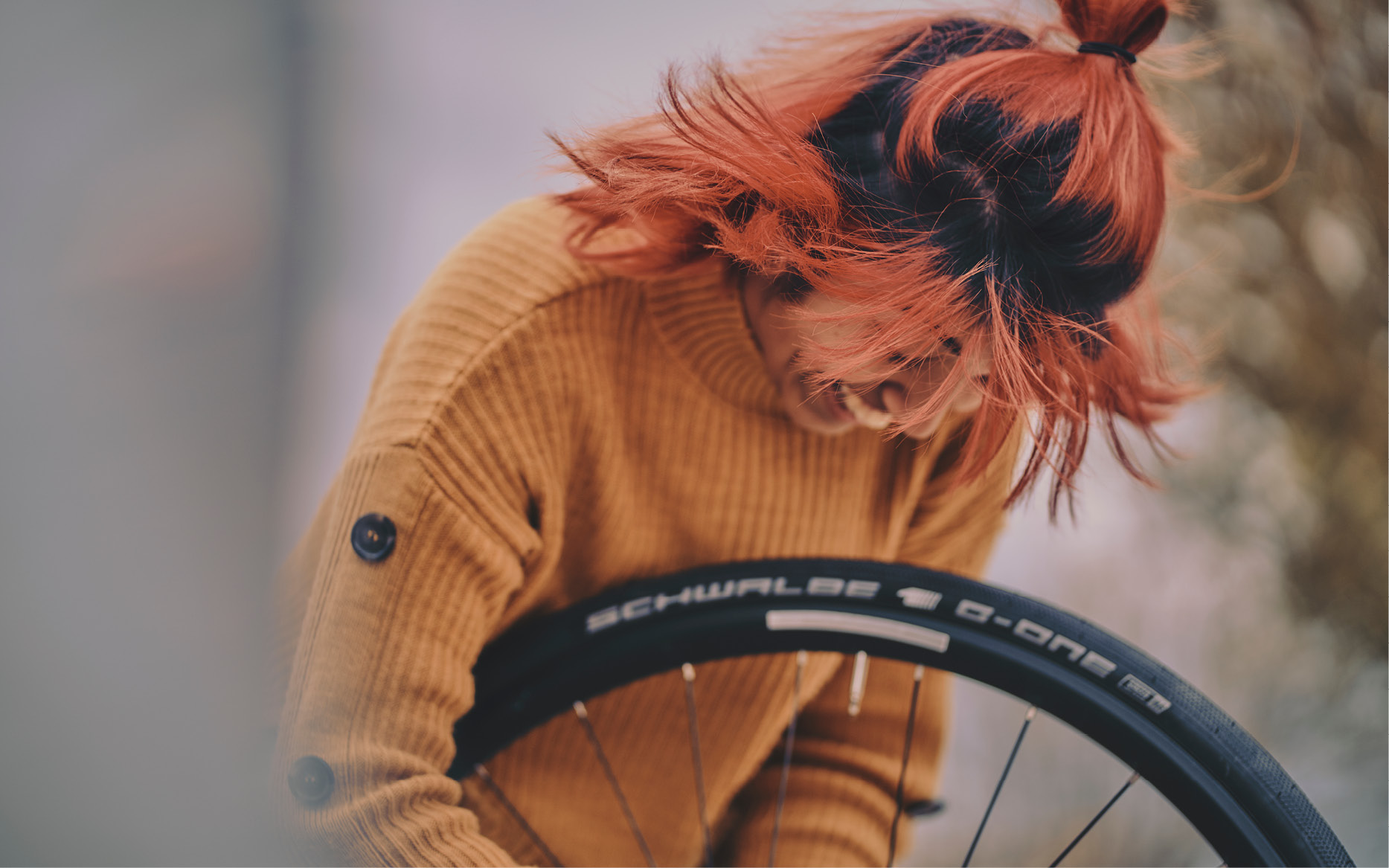
How did you get into cycling?
I’m originally from India and my expeditions started when I was seventeen. I wanted to cycle across the Himalayas and tried to go with several touring companies, but it didn’t work out because I was underage. My dad was also concerned because of my age, but I’d decided I would do it solo. In the end, he said that I could ride, but that he and mum would be in a car somewhere nearby. I was happy as long as I was cycling. As long as I was doing the route as planned, I didn’t mind.
I cycled from Manali all the way to Srinagar, crossing four high passes along the way, the tallest of which was almost 18,000ft. I loved the fact that I was on my bike, alone all the time – my parents were around somewhere but I never knew exactly where. All things considered, I really loved it. I particularly loved being in the mountains and I decided there and then that I was going to have to do more of the same; it was just a question of how much more…
Your dad has been a big influence and supporter of your expeditions?
My dad used to work in the oil and gas industry, so he had seen a lot more of the world than anyone else in my family might have. He believed that the more I travelled, the better person I would be. He encouraged me to get out a lot, to ride bikes, to go running. We lived very close to the mountains, so my family used to go on long hikes.
Then later, every time I came up with any crazy idea, I’d always tell my dad and he was always a huge support, but he’d also make sure I had the mechanical know-how and proper instincts to deal with any situation that may arise.
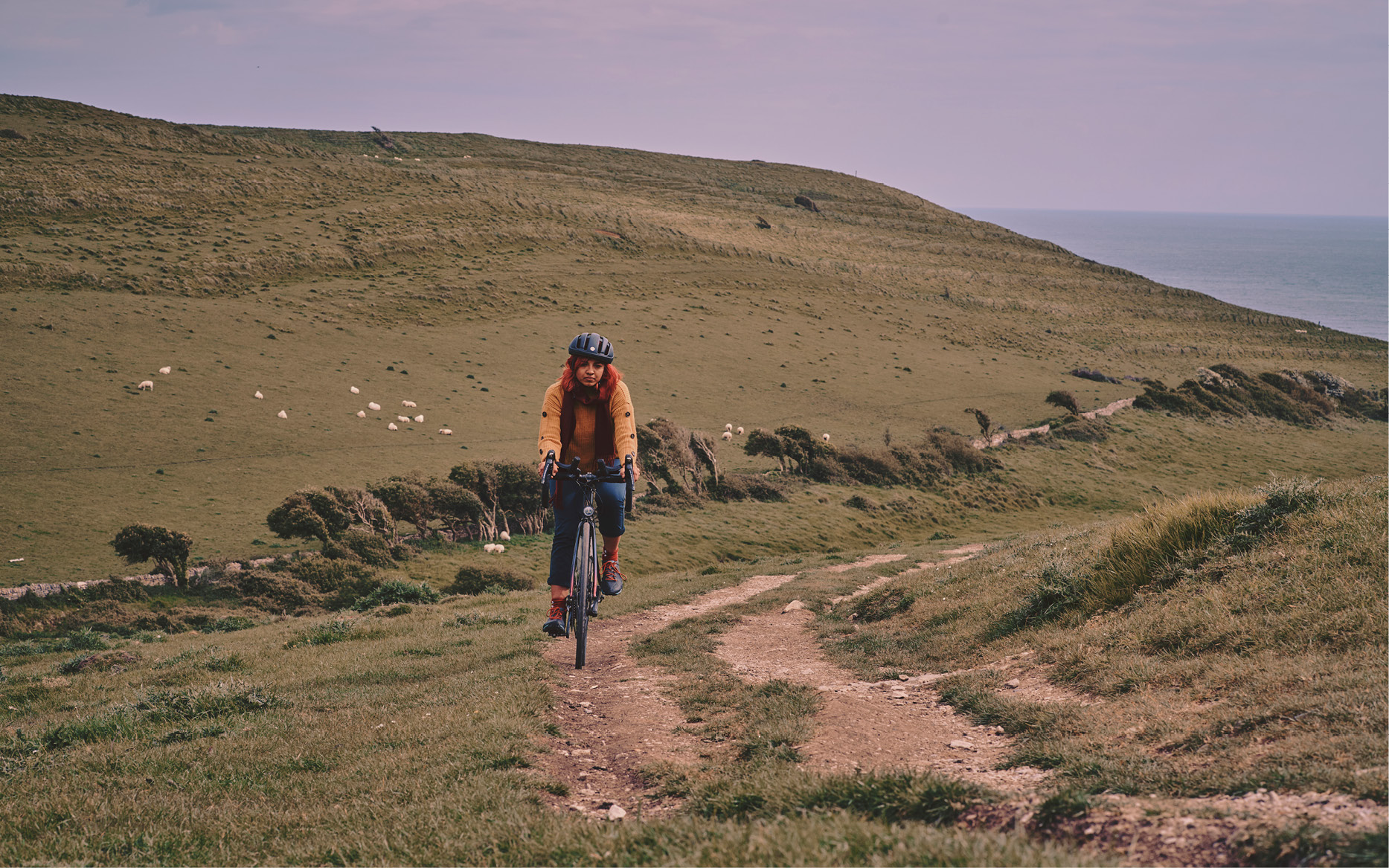
Presumably those instincts really helped when you moved to the UK?
Yes, a few months after my Himalayan expedition, I moved to the UK to study Sports Management at Bournemouth University. I didn’t know much about how anything worked in the United Kingdom – traffic rules or anything – but I had my bicycle and I ended up cycling across the country.
I didn’t have much preparation, but I had signed up for London-Edinburgh-London, so I had to train for that and the best way to do that was just by riding my bike. I ended up cycling from university in Bournemouth to John O’Groats. It took me many many days to get there, but it didn’t matter. It was the first time I was doing so many things at once; it was the first time I was riding my bike for a long distance in the UK; it was the first time I was introduced to this new culture. I didn’t even understand English properly – I had to ask people to slow down when they spoke because I didn’t understand.
Then when I did London-Edinburgh-London I crashed and dislocated my knee, but continued riding. Officially, I DNF’d but I just kept going because I didn’t know what I wanted to do. I think I cycled 1,000km with a very swollen knee which took eight months of rehab and recovery to fix. By that time, I was already training for the world tour.
By the time I’d committed to the expedition, I think I’d cycled the entire United Kingdom, except Northern Ireland, on my bike, just to get to know it.
It sounds like you know a lot more of the UK than most of its citizens?
Yeah, even with my friends in Bournemouth I keep saying these names of places, small towns and strange parts of the UK, and they’d never even heard of them, let alone been there!
I found I absolutely loved not knowing anything about a place before going there or knowing very little. Me and my family travelled a lot when I was growing up. With your parents you have that safety net, but when I moved here, it was all me; I had to figure it out for myself. There was a moment when I knew that I had some growing up to do, but then everything else just happened by itself.
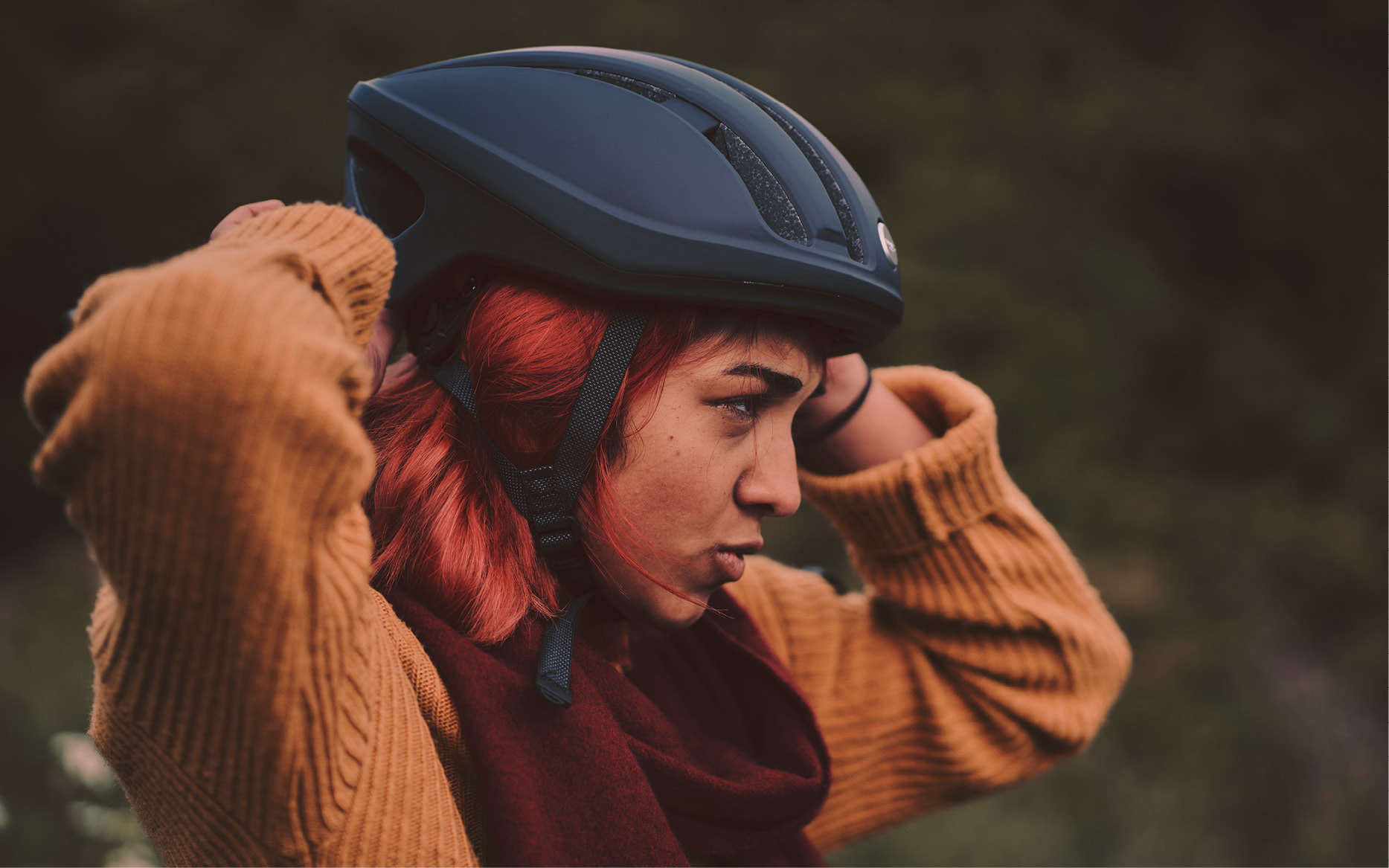
Did you discover anything about yourself as you explored the country?
Yes, definitely. This journey was as much about self-discovery as it was about challenging and pushing myself. I learned how far I can actually go if I set my mind to it and I went above and beyond my limits.
There was also an element of learning what freedom meant to me. The reason I moved to England specifically was freedom and I remember my father told me at the airport “Don’t come back, you’re not going to get any freedom here.” That’s where the whole thing with self-discovery began. I moved here and I started traveling, I started meeting new people, I started learning a few more languages. When I took up long-distance cycling, I found I could explore everything around me and even inside me, finally achieving that sense of freedom.
Freedom for me is being able to explore as much as I can. Freedom for me is conversations. Freedom for me is people. And freedom for me is riding my bike.
“This journey was as much about self-discovery as it was about challenging and pushing myself. I learned how far I can actually go if I set my mind to it and I went above and beyond my limits.”
So, you got to know the UK by bike. Was that an inspiration for your round-the-world trip – getting to know the world?
Not quite. The expedition actually has its roots back in 2015 when I read about Tom Davies who was 19 and cycled around the world, becoming the youngest person to do it. I remember looking at my dad and saying, “One day I’ll do something like that.”
At that point, it could have been anything. In fact, it would probably not be a bike trip, but somehow I would travel the world. I was young, I was having the time of my life, and my dad just smiled. He knew then that once I’d said that, I was hooked; I was going to do it and I just had to work out how.
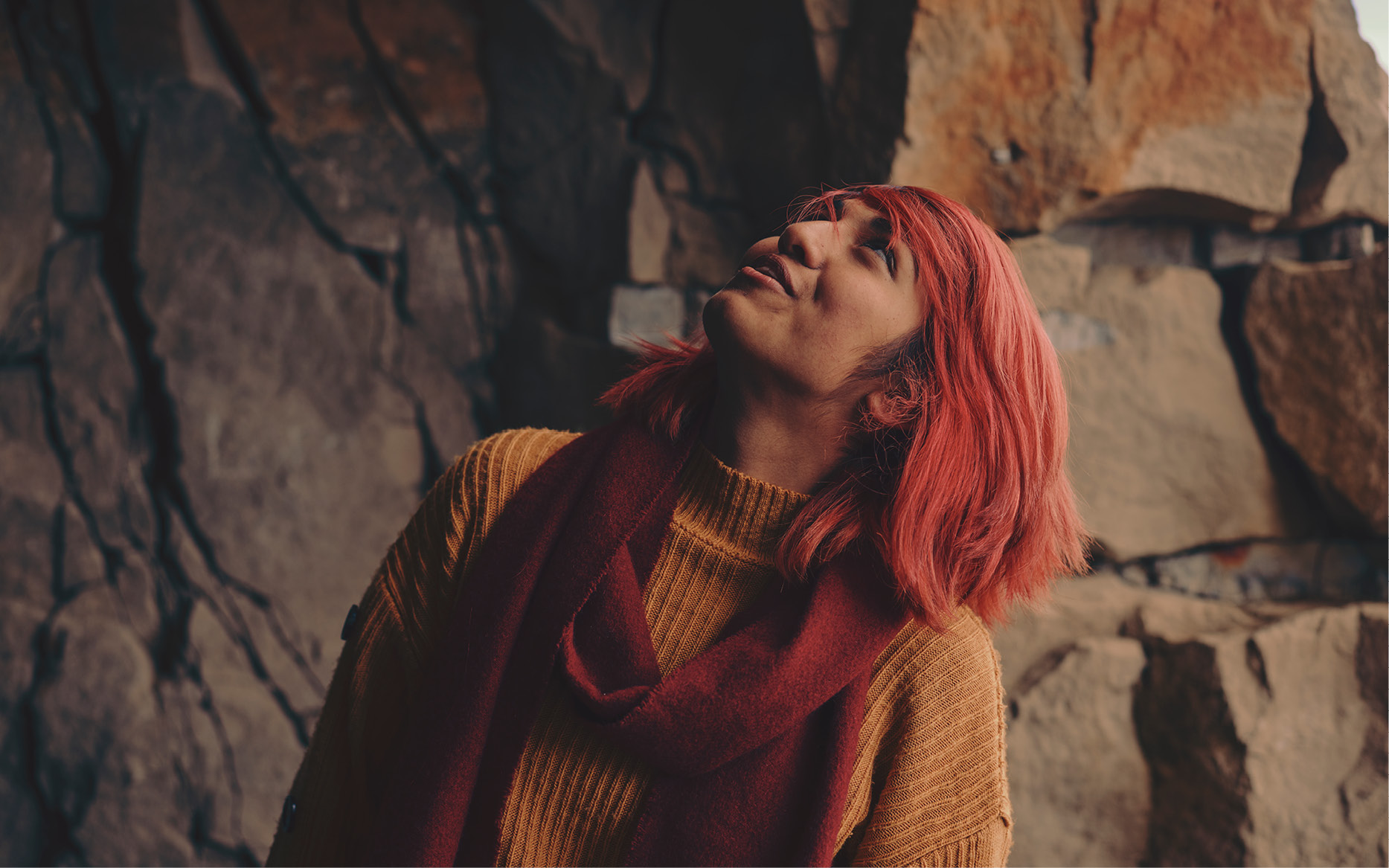
You realised that when you were fifteen?
Yes. I do remember feeling very much under the impression that I wasn’t normal. I wasn’t very good friends with the people at my school. Maybe I was doing something wrong. Why couldn’t I just get on with everyone? I just knew there was something different about me.
I was already reading about adventures and about riding around the world. I didn’t know whether I could do that, but I knew I wanted to explore, I knew I wanted to travel. When I eventually cycled across the UK, I discovered that I really loved long distance cycling and that I was able to cycle for a long time.
I was alone, but I didn’t feel alone when I was cycling.
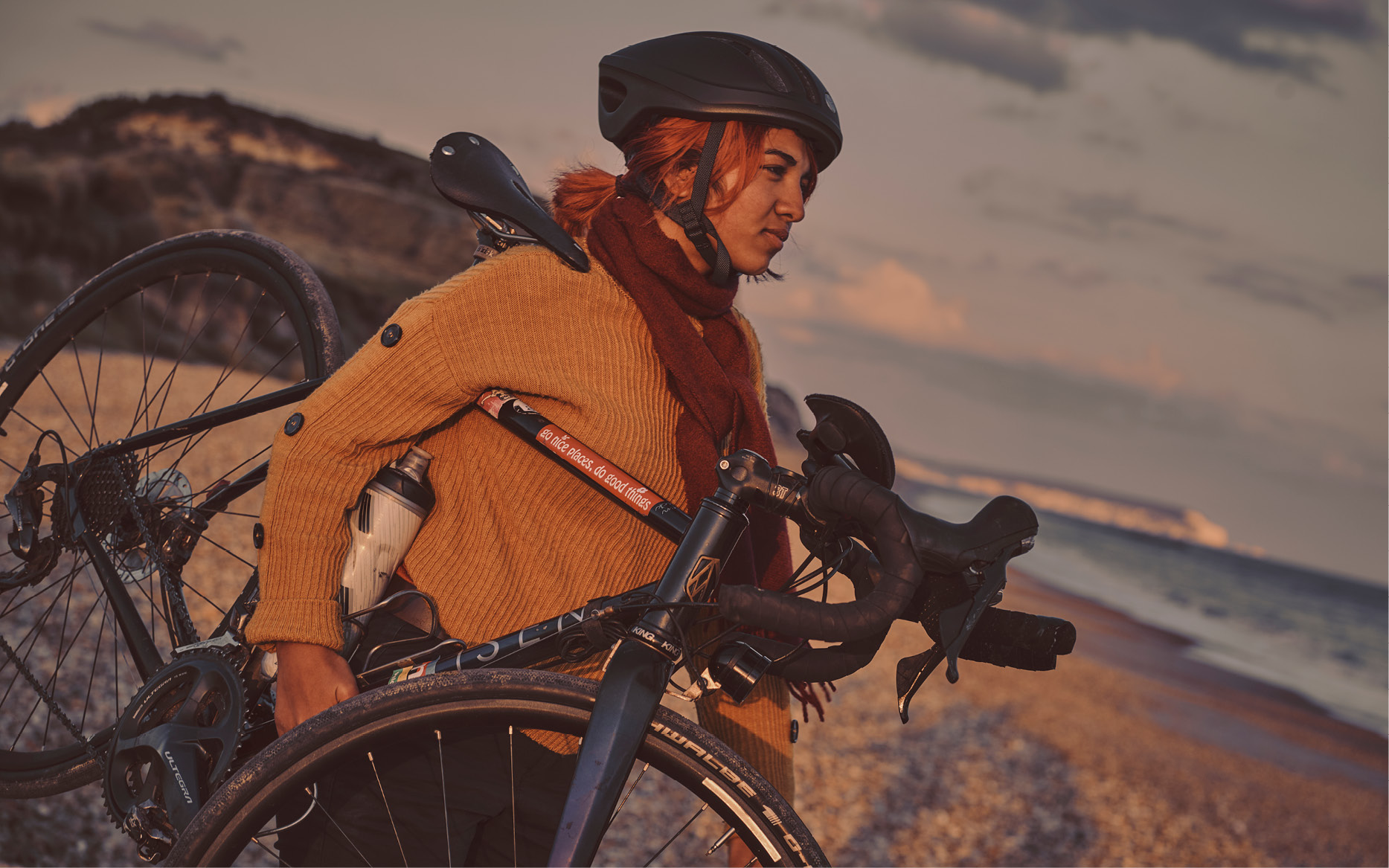
And the idea of riding around the world came before the record for you.
It didn’t start with the record, no, it started from knowing that I enjoyed riding for a long time – that I could spend a long time alone and not get bored of myself, of what was around me. I was having fun and I wanted to explore. I wanted to be in the adventure industry in the future, so I thought, “Hell yeah, I’m doing it!”
Can you tell us a bit about your bike setup? You chose the Brooks B17 saddle?
Caren Hartley built my bike and she was using Brooks at the time. I was also already using a Brooks saddle, really liked it and wanted to use it for my expedition. I remember saying that with my Brooks saddle, the bike felt like home and that made sense for my round-the-world bike. So I asked Caren Hartley to put my B17 on the bike, the ISEN Workshop All Road Bike, and she was obviously more than happy to.
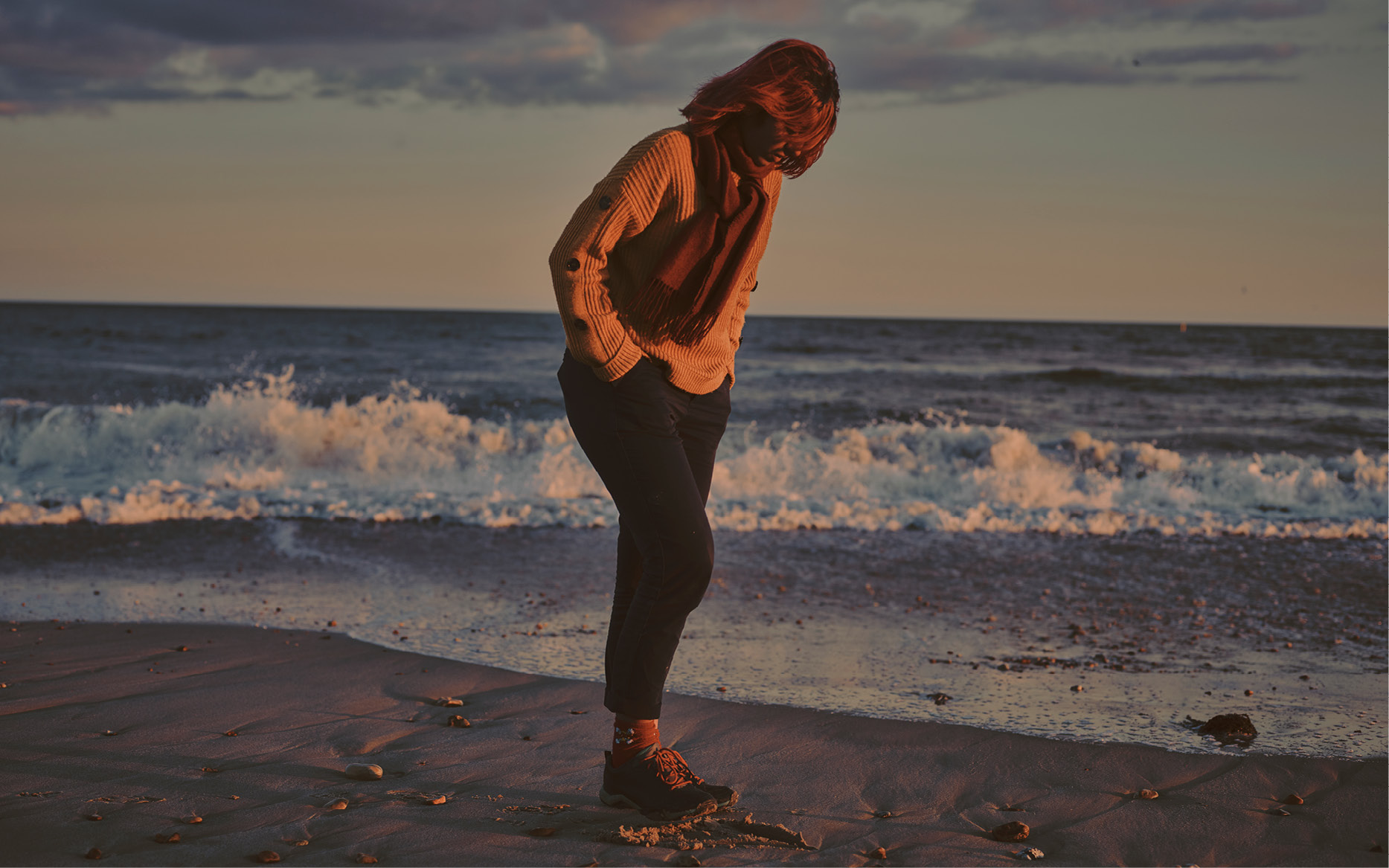
You had some pretty dramatic experiences on your trip, right?
Yeah, I got chased by a bear in Canada. It was on a climb out of Glacier National Park and my bear spray was out of reach in my hydration pack so I was panicking a little. It was a grizzly – really, really big and surprisingly fast. I think that’s the fastest I’ve ever gone uphill, zigzagging all over the road trying to get away. And to make it worse, there was a truck coming in the opposite direction and he must have stopped inches from me. I swear, if the grizzly wasn’t going to get me, the truck would!
Then I was mugged in Spain and that changed everything for me. I was under pressure to get the world record by this point so was riding faster and further each day. Getting mugged at knife-point, thrown into a ditch and robbed of my cash, certainly didn’t help things. At least they didn’t take my bike.
I was unconscious for a few hours and when I finally got up, I just didn’t know anything. I didn’t know which direction I’d been riding or which country I was in… I ended up at a gas station where the guy asked me loads of questions, trying to understand what had happened, but I didn’t really have any answers.
“I was mugged in Spain. I was under pressure to get the world record by this point so was riding faster and further each day. Getting mugged at knife-point, thrown into a ditch and robbed of my cash, certainly didn’t help things. At least they didn’t take my bike.”
Slowly, I started having flashes of memory and I suddenly found myself able to recall the license plate of the muggers’ motorbike. I clearly remember now that because I was so scared, I wanted to distract myself because there was a sharp knife at my neck. I’d stared at the license plate, repeating it to myself over and over again, trying to calm myself down. It meant we could report the incident, so it worked out.
After that, I lost a lot of confidence in what I was doing. I didn’t feel strong in any way but somehow, I decided I didn’t want to stop. This is my thing, I wanted to keep going. But it was very hard. Normally I was doing 100-200km in four or five hours, but after I was concussed, everything was different. I went very slowly and carefully, sometimes so slow that I’d be faster if I’d walked. But I kept going.
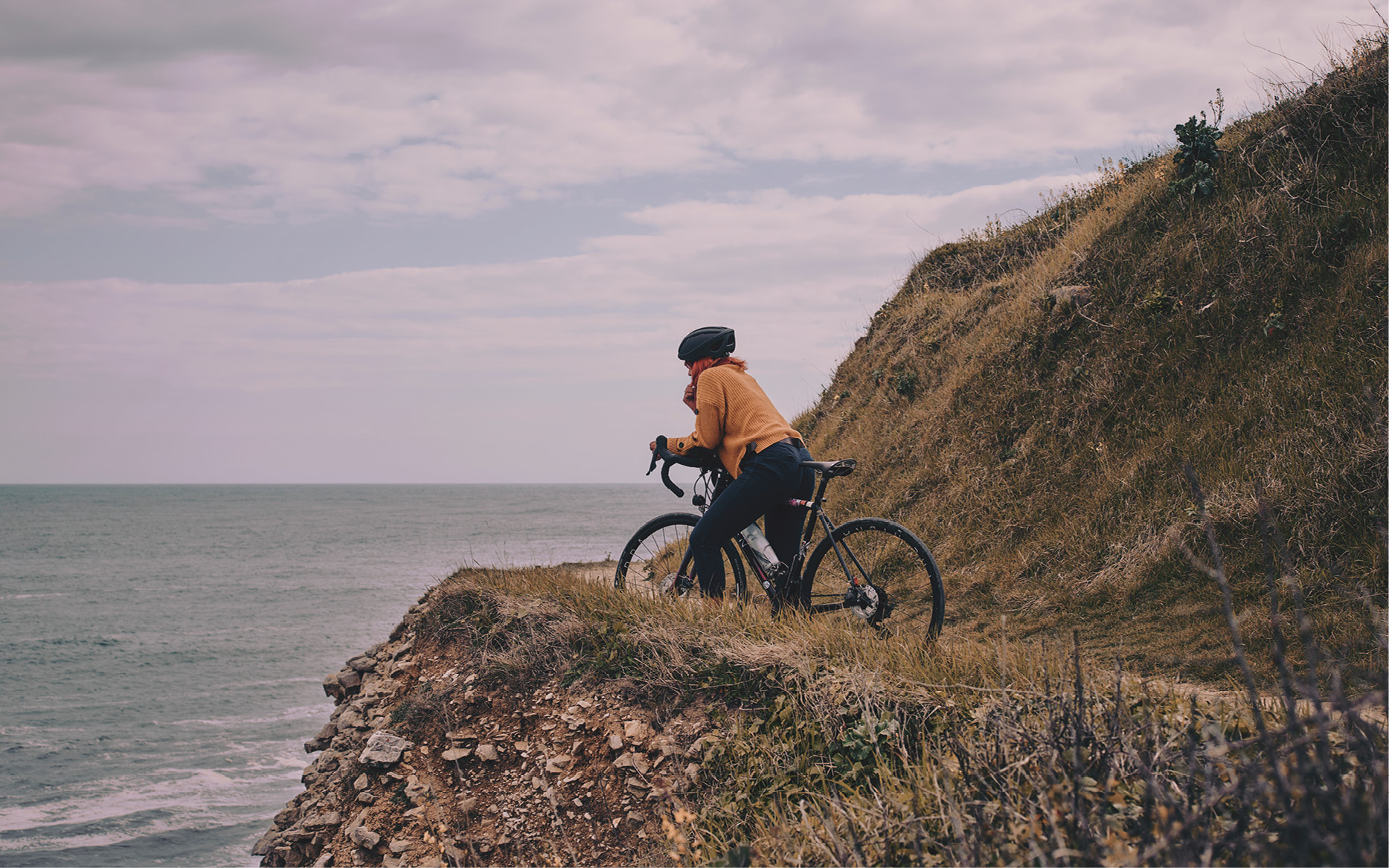
That must have felt particularly lonely?
Oh yes. I think the main thing I felt a lot of the time was one of being left out. I felt it most acutely when I logged onto social media. Everyone in Bournemouth was having the best time of their lives and then there’s me… But I was never bored. I might have been physically alone but I was filled with so much curiosity and fascination about what was around me, doing those roads for the first time, even in Australia where there was a whole load of nothing!
“It’s always easy to cry about problems, but I like to just move onto the next step. To be proactive and get on with it is something I learnt during the expedition. I like keeping this attitude because I want to go further and do other things – that’s what I’m here for.”
I was actually at my happiest when I had problem-solving situations. That’s when I was at my best. On the Russian border, for instance. They’d asked me for money, but I knew that was not official and anyway, they weren’t asking anyone else. I’d done my research, so I kept refusing and said, “If you ask me one more time, I’m going to call my lawyer.” Honestly, I didn’t have any phone signal at the time, I didn’t even have a Russian sim card, but as soon as I said ‘lawyer’ they gave in – I was inside the country. Brave or reckless, I don’t know, but I knew I shouldn’t have to pay anything.
That was my thing – when I had a problem to solve or something to sort out. I knew I had those instincts and resources to draw upon. It’s always easy to cry about problems, but I like to just move on, onto the next step. To be proactive and get on with it is something I learnt during the expedition. I like keeping this attitude because I want to go further and do other things – that’s what I’m here for.

And it’s that instinct that you’re planning on harnessing in a professional capacity?
That’s the plan. I am managing an expedition for a guy I met at university who is planning to be the youngest person to do a solo crossing of Antarctica – from coast to south pole. He will be 22 when he does it in November 2020.
I’d like to do more of that – help university students to raise money for their expeditions and get all the logistics sorted. Working on expeditions, whether it’s your own or somebody else’s, you’re always working towards something, always on the move, always getting somewhere with what you’re doing.
Basically, I want to be in those problem-solving situations more and managing expeditions would give me just that.
Vedangi Kulkarni’s Round-The-World Essentials
More People Stories
Erwin Sikkens… the dadventurer
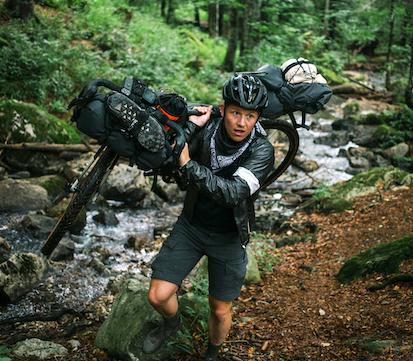
New Brooks ambassador Erwin Sikkens is a bikepacking gravel route deviser, and won’t let being a dad diminish his sense of adventure. Quite the opposite in fact!
READ MOREMr Imperfect… meet Allan Shaw
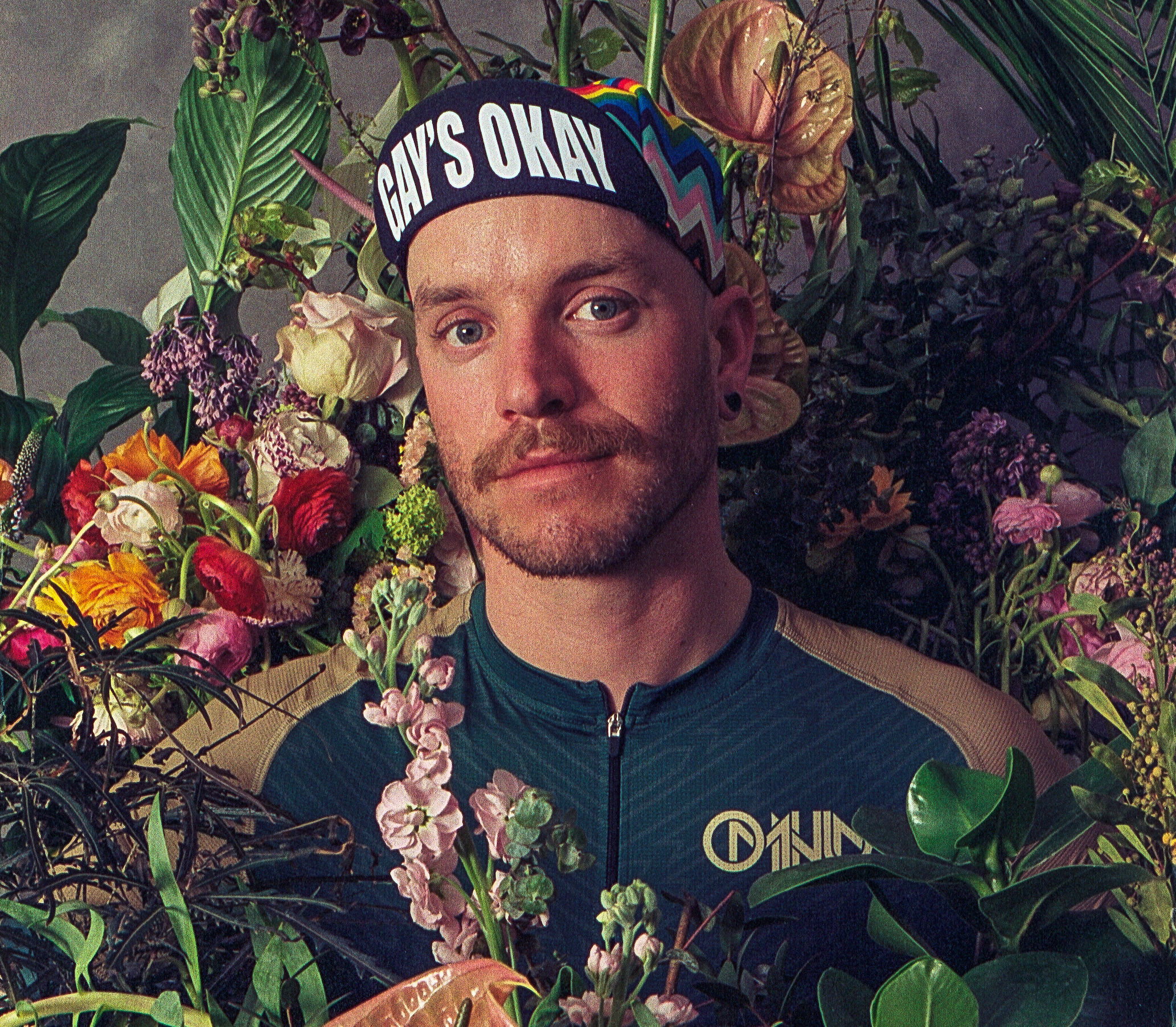
Discover Allan Shaw’s philosophy of anti-elitism, pro-imperfection, and eternal optimism.
READ MOREIntroducing… Anton Krupicka
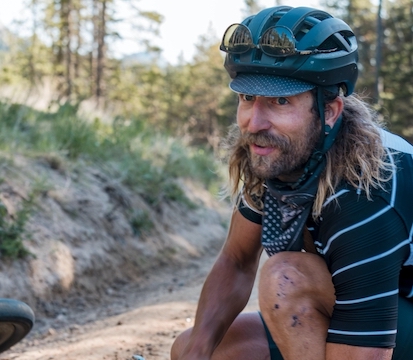
Anton Krupicka is an adventure cyclist, runner, skier. A longtime Brooks rider, we’re delighted he’s now also a partner athlete.
READ MORE


